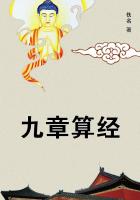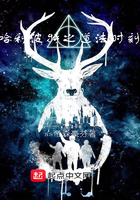Savage fancy, curiosity and credulity illustrated in nature myths--In these all phenomena are explained by belief in the general animation of everything, combined with belief in metamorphosis--Sun myths, Asian, Australian, African, Melanesian, Indian, Californian, Brazilian, Maori, Samoan--Moon myths, Australian, Muysca, Mexican, Zulu, Macassar, Greenland, Piute, Malay--Thunder myths--Greek and Aryan sun and moon myths--Star myths--Myths, savage and civilised, of animals, accounting for their marks and habits--Examples of custom of claiming blood kinship with lower animals--Myths of various plants and trees--Myths of stones, and of metamorphosis into stones, Greek, Australian and American--The whole natural philosophy of savages expressed in myths, and survives in folk-lore and classical poetry; and legends of metamorphosis.
The intellectual condition of savages which has been presented and established by the evidence both of observers and of institutions, may now be studied in savage myths. These myths, indeed, would of themselves demonstrate that the ideas which the lower races entertain about the world correspond with our statement. If any one were to ask himself, from what mental conditions do the following savage stories arise? he would naturally answer that the minds which conceived the tales were curious, indolent, credulous of magic and witchcraft, capable of drawing no line between things and persons, capable of crediting all things with human passions and resolutions. But, as myths analogous to those of savages, when found among civilised peoples, have been ascribed to a psychological condition produced by a disease of language acting after civilisation had made considerable advances, we cannot take the savage myths as proof of what savages think, believe and practice in the course of daily life. To do so would be, perhaps, to argue in a circle. We must therefore study the myths of the undeveloped races in themselves.
These myths form a composite whole, so complex and so nebulous that it is hard indeed to array them in classes and categories. For example, if we look at myths concerning the origin of various phenomena, we find that some introduce the action of gods or extra-natural beings, while others rest on a rude theory of capricious evolution; others, again, invoke the aid of the magic of mortals, and most regard the great natural forces, the heavenly bodies, and the animals, as so many personal characters capable of voluntarily modifying themselves or of being modified by the most trivial accidents. Some sort of arrangement, however, must be attempted, only the student is to understand that the lines are never drawn with definite fixity, that any category may glide into any other category of myth.
We shall begin by considering some nature myths--myths, that is to say, which explain the facts of the visible universe. These range from tales about heaven, day, night, the sun and the stars, to tales accounting for the red breast of the ousel, the habits of the quail, the spots and stripes of wild beasts, the formation of rocks and stones, the foliage of trees, the shapes of plants. In a sense these myths are the science of savages; in a sense they are their sacred history; in a sense they are their fiction and romance.
Beginning with the sun, we find, as Mr. Tylor says, that "in early philosophy throughout the world the sun and moon are alive, and, as it were, human in their nature". The mass of these solar myths is so enormous that only a few examples can be given, chosen almost at random out of the heap. The sun is regarded as a personal being, capable not only of being affected by charms and incantations, but of being trapped and beaten, of appearing on earth, of taking a wife of the daughters of men. Garcilasso de la Vega has a story of an Inca prince, a speculative thinker, who was puzzled by the sun-worship of his ancestors. If the sun be thus all-powerful, the Inca inquired, why is he plainly subject to laws?
why does he go his daily round, instead of wandering at large up and down the fields of heaven? The prince concluded that there was a will superior to the sun's will, and he raised a temple to the Unknown Power. Now the phenomena which put the Inca on the path of monotheistic religion, a path already traditional, according to Garcilasso, have also struck the fancy of savages. Why, they ask, does the sun run his course like a tamed beast? A reply suited to a mind which holds that all things are personal is given in myths.
Some one caught and tamed the sun by physical force or by art magic.
Primitive Culture, i. 288.
In Australia the myth says that there was a time when the sun did not set. "It was at all times day, and the blacks grew weary.
Norralie considered and decided that the sun should disappear at intervals. He addressed the sun in an incantation (couched like the Finnish Kalewala in the metre of Longfellow's Hiawatha); and the incantation is thus interpreted: "Sun, sun, burn your wood, burn your internal substance, and go down". The sun therefore now burns out his fuel in a day, and goes below for fresh firewood.
Brough Smyth, Aborigines of Victoria, i. 430.
In New Zealand the taming of the sun is attributed to the great hero Maui, the Prometheus of the Maoris. He set snares to catch the sun, but in vain, for the sun's rays bit them through.
According to another account, while Norralie wished to hasten the sun's setting, Maui wanted to delay it, for the sun used to speed through the heavens at a racing pace. Maui therefore snared the sun, and beat him so unmercifully that he has been lame ever since, and travels slowly, giving longer days. "The sun, when beaten, cried out and revealed his second great name, Taura-mis-te-ra."















